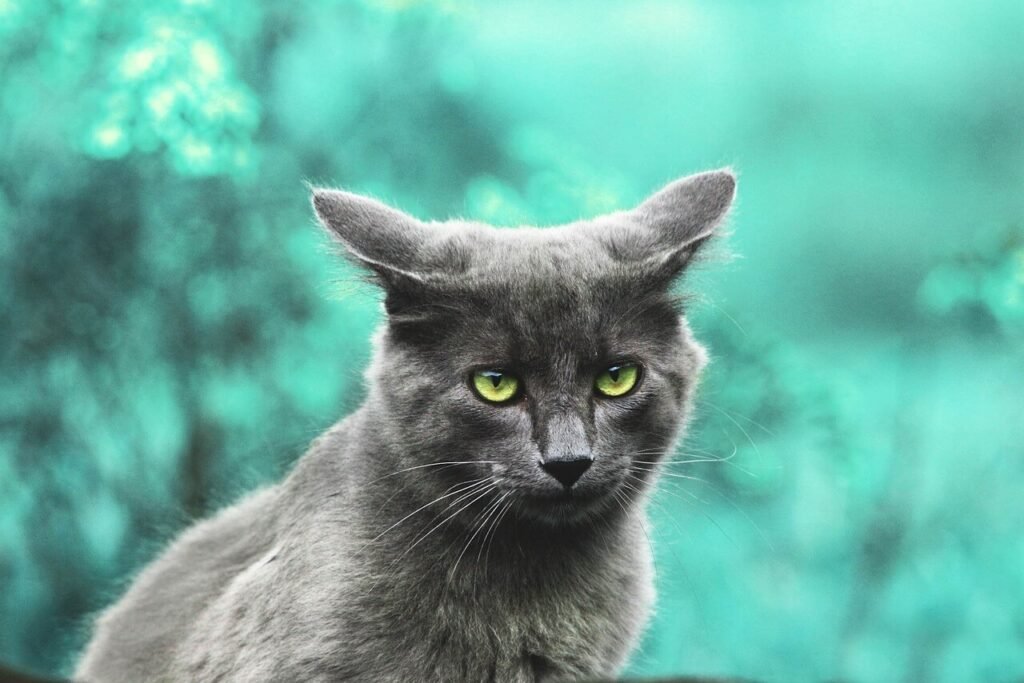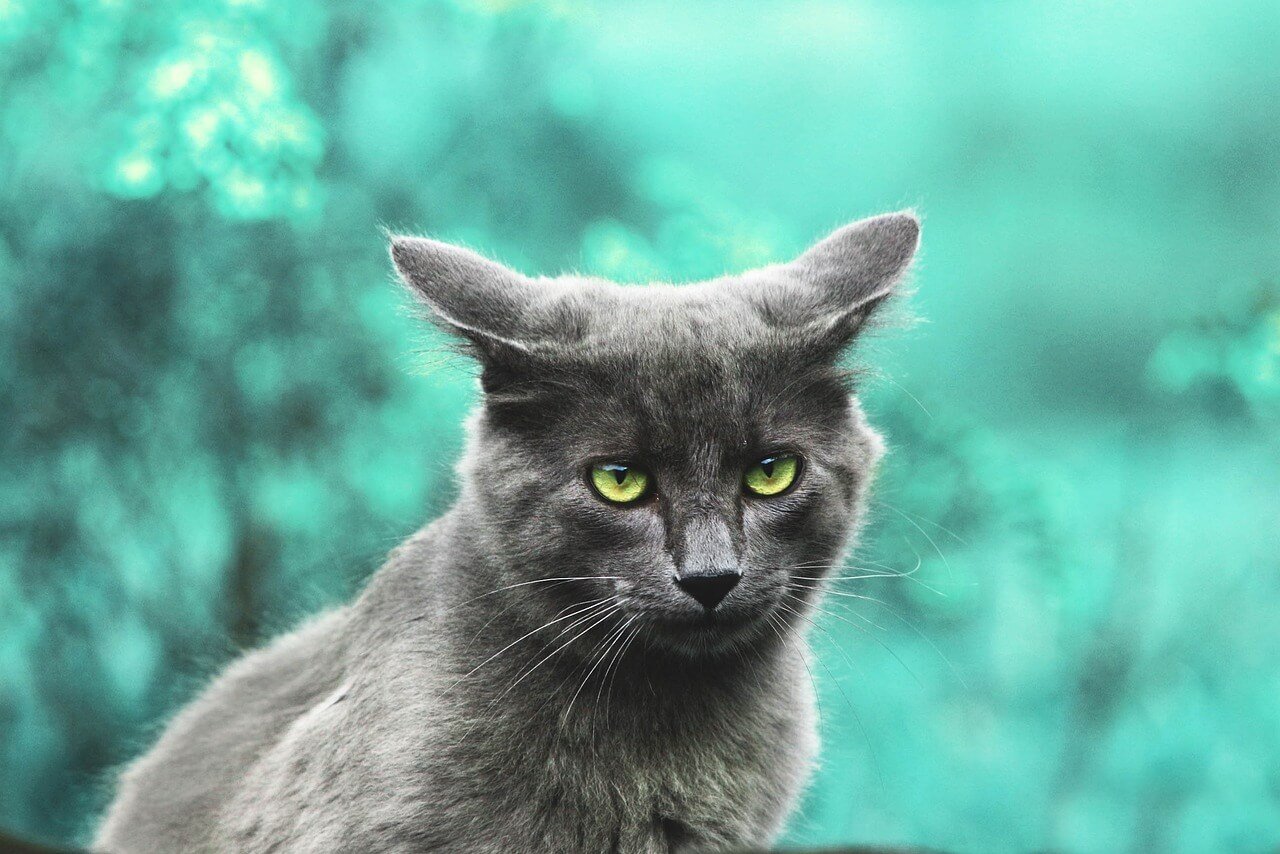Should I Let My Cat Lick Me? Understanding Feline Affection
Cats are known for their quirky and affectionate behaviors, and one of the most common ways they show love is by licking. If your cat has ever tried to lick you, you might wonder whether it’s safe or appropriate to let them do so. While this behavior is often a sign of trust and bonding, there are factors to consider before fully embracing it. From hygiene concerns to understanding what your cat is trying to communicate, we’ll explore everything you need to know about letting your cat lick you. By the end of this guide, you’ll have a clear idea of how to respond when your feline friend decides to shower you with slobbery affection.
Why Does My Cat Lick Me? Possible Reasons Behind the Behavior
Cats lick humans for a variety of reasons, and understanding their motivations can help you decide whether to encourage or discourage this behavior. Here are some common explanations:
Bonding and Affection : Cats often groom each other as a way to strengthen social bonds, and licking you is their way of including you in their “family.”
Marking Their Territory : Cats have scent glands in their mouths, and licking helps them mark you as part of their territory.
Curiosity : Your cat may be drawn to the taste or smell of something on your skin, such as lotion, sweat, or food residue.
Comfort and Habit : Kittens learn grooming habits from their mothers, and licking can be a comforting behavior that carries into adulthood.
Seeking Attention : If your cat wants your focus, licking might be their way of getting you to engage with them.
By recognizing why your cat licks you, you can better interpret their intentions and respond appropriately.
Potential Risks of Letting Your Cat Lick You
While cat licks are often harmless, there are some risks associated with allowing your cat to lick your skin. Being aware of these potential dangers can help you make an informed decision.
Bacterial Infections : Cats’ mouths contain bacteria like Pasteurella , which can cause infections if introduced through broken skin.
Allergic Reactions : Some people may develop skin irritation or allergic reactions to saliva or dander transferred during licking.
Parasites : Cats that go outdoors may carry parasites, which could potentially be transmitted through licking.
Hygiene Concerns : Saliva can spread dirt, oils, or odors onto your skin or clothing.
Behavioral Reinforcement : Allowing licking might encourage excessive grooming behavior, leading to obsessive tendencies in some cats.
Understanding these risks ensures you can weigh the pros and cons of letting your cat express affection through licking.
Check this guide 👉Why Is My Cat Licking Everything? Best 7 Expert Tips!
Check this guide 👉Why Does My Cat Lick My Head? Best 7 Behavior Tips!
Check this guide 👉Why Does My Cat Lick Me and Not My Husband? Best 7 Tips!

Benefits of Letting Your Cat Lick You | Risks of Letting Your Cat Lick You |
|---|---|
Strengthens the bond between you and your cat | Risk of bacterial infections from saliva |
Provides comfort and reassurance to your cat | Potential for allergic reactions or skin irritation |
Shows trust and affection from your cat | Possible transfer of parasites or dirt |
Encourages positive behavioral reinforcement | May lead to obsessive licking habits |
Mimics natural feline grooming behaviors | Can create hygiene concerns for humans |
How to Safely Allow Your Cat to Lick You
If you decide to let your cat lick you, there are steps you can take to minimize risks and ensure the experience is safe for both of you.
Wash Your Skin Afterward : Clean the area your cat licked with soap and water to remove saliva and reduce the risk of infection.
Check for Open Wounds : Avoid letting your cat lick areas with cuts, scrapes, or broken skin to prevent bacteria from entering your bloodstream.
Monitor Your Cat’s Health : Ensure your cat is up-to-date on vaccinations and parasite prevention treatments to minimize health risks.
Set Boundaries : Gently redirect your cat if their licking becomes excessive or uncomfortable for you.
Use Positive Reinforcement : Reward your cat with treats or praise when they exhibit affection in less risky ways, like head-butting or purring.
By following these guidelines, you can enjoy your cat’s affection while keeping both of you healthy and happy.
Alternatives to Letting Your Cat Lick You
If you’re uncomfortable with your cat licking you, there are plenty of other ways to foster a strong bond without encouraging this behavior.
Petting and Brushing : Spend quality time grooming your cat or petting them to show affection and build trust.
Interactive Play : Engage in play sessions with toys like feather wands or laser pointers to strengthen your connection.
Offer Treats : Reward your cat with healthy treats as a way to show love and reinforce positive behavior.
Provide Comfort Items : Give your cat cozy blankets or beds to satisfy their need for warmth and security.
Talk to Your Cat : Speaking softly or using calming tones can reassure your cat and deepen your emotional bond.
These alternatives allow you to nurture your relationship with your cat while avoiding unwanted licking.
Recognizing When Licking Becomes a Problem
While occasional licking is normal, excessive licking can indicate underlying issues that need attention. Here are some signs that your cat’s licking behavior may have crossed into problematic territory:
Obsessive Grooming : If your cat licks themselves or you to the point of bald patches or skin irritation, it could signal stress or anxiety.
Aggressive Behavior : Licking accompanied by biting or scratching may indicate overstimulation or territorial behavior.
Frequent Interruptions : If your cat constantly interrupts your activities to lick you, they may be seeking attention excessively.
Changes in Personality : A sudden increase in licking might reflect discomfort, illness, or changes in their environment.
Ignoring Redirection : If your cat ignores attempts to redirect their behavior, it could indicate compulsive tendencies.
If you notice these signs, it’s important to address the root cause and consult a veterinarian if necessary to rule out medical or behavioral issues.
Gentle Ways to Discourage Unwanted Licking
If your cat’s licking becomes too frequent or intense, redirection can help them express affection in healthier ways. Here are some strategies to try:
Distract with Toys : Offer engaging toys like feather wands or crinkle balls to shift their focus away from licking.
Use Positive Reinforcement : Reward your cat with treats or praise when they show affection without licking.
Introduce Chew Alternatives : Provide safe chew toys or cat-safe grass to satisfy their oral fixation.
Create a Routine : Establish predictable play and grooming times to reduce anxiety-driven licking.
Teach Commands : Use simple verbal cues like “no lick” or “stop” to gently discourage the behavior.
With patience and consistency, these techniques can help curb excessive licking while maintaining a strong bond with your cat.
Why Letting Your Cat Lick You (Safely) Can Strengthen Your Bond
When managed responsibly, allowing your cat to lick you can have emotional benefits for both of you. Here’s why controlled licking can enhance your relationship:
Builds Trust : Licking is a sign of trust and acceptance, reinforcing the bond between you and your cat.
Boosts Their Confidence : Allowing this natural behavior makes your cat feel secure and valued in their environment.
Encourages Communication : Licking is one way cats express their emotions, helping you better understand their needs.
Provides Comfort : For your cat, licking you can be a soothing activity that reduces their stress levels.
Strengthens Affectionate Habits : Encouraging safe licking fosters positive interactions and mutual affection.
By balancing safety with emotional connection, you can enjoy the unique way your cat shows love while keeping both of you healthy and happy.
Frequently Asked Questions About Cats Licking Humans
Is it normal for my cat to lick me?
Yes, licking is a common behavior among cats and often signifies affection or bonding.
Can I get sick from my cat licking me?
While rare, there is a small risk of bacterial infections, especially if you have open wounds. Always wash your skin afterward.
Why does my cat only lick me and not others?
Your cat likely feels a special bond with you or prefers your scent over others.
How can I stop my cat from licking me?
Redirect their attention to toys or treats, and gently discourage the behavior when it happens.
Should I let my cat lick my face?
It’s best to avoid letting your cat lick sensitive areas like your face due to hygiene and health risks.
Finding Balance in Your Relationship with Your Cat
Deciding whether to let your cat lick you ultimately depends on your comfort level and understanding of the associated risks. While licking is a natural and affectionate behavior, it’s important to prioritize safety and hygiene for both you and your feline companion. By setting boundaries, monitoring your cat’s health, and exploring alternative ways to bond, you can maintain a loving and mutually satisfying relationship. Remember, every cat is unique, and finding what works best for you and your furry friend is key to a harmonious household.
How to Taper Off Prednisone for Cats: Best 7 Expert Tips! – Safely reduce prednisone with vet guidance. Learn now!
How to Taper Off Prednisone Schedule for Dogs: Best 7 Tips! – Learn the safe way to reduce prednisone, recognize withdrawal signs, and keep your dog healthy during the process.
Can a Cat Scratch Give You Rabies? Best 7 Expert Tips! – Learn how rabies spreads, assess risks from cat scratches, and know when to seek medical help. Stay safe!
Can a Dog Scratch Give You Rabies? Best 7 Expert Tips! – Learn the risks, symptoms, and steps to take if scratched by a dog. Stay informed and protect yourself from rabies exposure.





